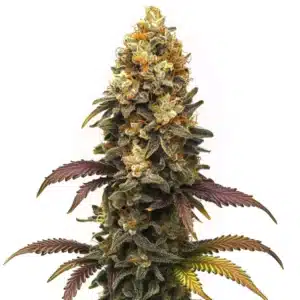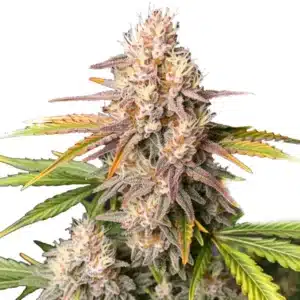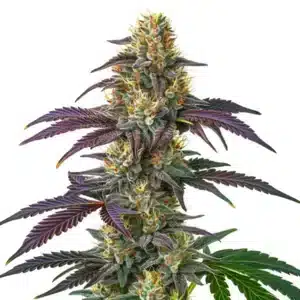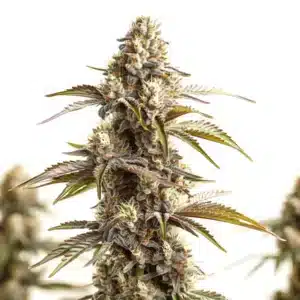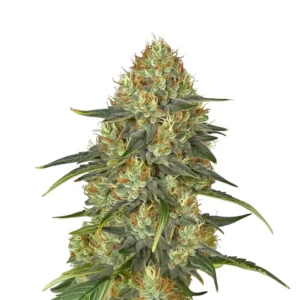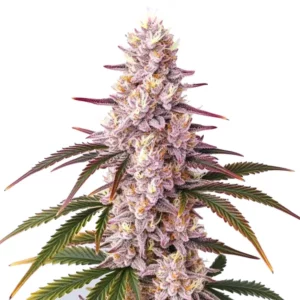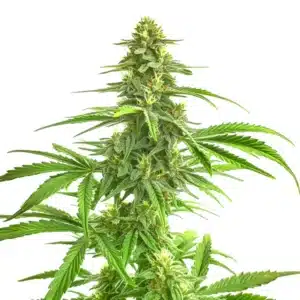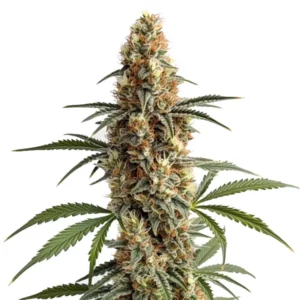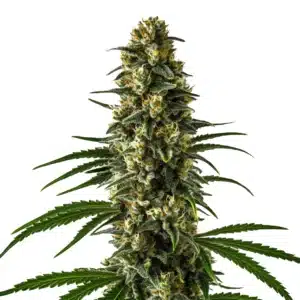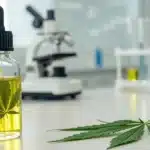
Quercetin Benefits and Side Effects: What You Need to Know
Ever wondered about the health benefits of cannabis strains rich in quercetin? This plant compound, found in abundance in certain strains of cannabis seeds from Blimburn Seeds, has garnered much attention for its potential health benefits. But alongside its advantages, it’s essential to be aware of the possible side effects associated with quercetin. We delve into both the pros and cons to give you a clear idea about this intriguing compound.
Quercetin is a plant pigment, or flavonoid, found in many fruits, vegetables, and grains. It’s one of the most abundant antioxidants in the human diet and plays a significant role in helping your body combat free radical damage, which is linked to chronic diseases. Moreover, it has potent anti-inflammatory effects, which can reduce inflammation and allergy symptoms.
Recommended Strains
BC Diesel
|
|
THC | 18% - 20% (Medium) |
|
|
Type | Feminized |
|
|
Yield | Medium |
|
|
Phenotype | 35% Indica / 65% Sativa |
Bc God Bud Regular
|
|
THC | 21% - 23% (Medium) |
|
|
Type | Regular |
|
|
Yield | High |
|
|
Phenotype | 80% Indica / 20% Sativa |
Knowing the quercetin benefits and side effects can be particularly crucial for cannabis growers and users. Certain strains that are rich in this flavonoid can potentially have a significant impact on the user’s health, offering a range of benefits.
It’s not just limited to cannabis, though. Quercetin is a naturally occurring compound that can be found in a variety of everyday foods. By knowing its benefits and potential side effects, you can make informed decisions about incorporating this antioxidant into your diet.
Quercetin Benefits and side effects for Immune System
One of the main potential health benefits of quercetin supplements is their impact on the immune system. This compound has been shown to boost immune function, helping your body fight off illnesses and infections. Cannabis strains high in quercetin, such as the BC Diesel from Blimburn Seeds, can be a great addition to your grow if you’re looking to reap these benefits.
Quercetin works by stabilizing the cell membranes of mast cells and basophils, thus reducing the release of inflammation-causing substances. This leads to fewer allergy symptoms and a more robust immune response. Yet, it’s not a magic bullet. While it can enhance your immune system, maintaining a healthy lifestyle is still essential.
Quercetin benefits for the immune system don’t just stop at boosting its function. This powerful flavonoid also has antiviral properties, which can help your body fight off various viral infections. This can be especially beneficial during the cold and flu season or in situations where the immune system is compromised. However, it’s important to also consider quercetin benefits and side effects before using it regularly, as it may have varying effects depending on individual health conditions.
Moreover, the anti-inflammatory effect of quercetin is not limited to reducing allergy symptoms. It can also potentially help manage a variety of long-term inflammatory conditions, such as arthritis and chronic pain. However, it’s crucial to remember that while quercetin can support your immune health, it should not replace any prescribed medication or treatment.
Promos & Deals
Risks and Benefits of Taking Quercetin
As with any supplement, it’s crucial to consider the risks and benefits of taking quercetin. While it has many proven benefits, there can also be side effects. For instance, strains like the Mamba Negra, which have high levels of quercetin, are typically safe for most people when taken in moderation. However, they may cause headaches and tingling of the arms and legs in some people. Nausea and acid reflux are also potential side effects.
Despite these possible adverse effects of quercetin consumption, many people find that the benefits outweigh the risks. Quercetin is thought to have antiviral properties, can help reduce inflammation, and may even help combat cancer cells. As always, it’s best to start with small doses and monitor your body’s reaction.
Knowing the risks and benefits of taking quercetin, including its potential quercetin benefits and side effects, is vital before deciding to incorporate it into your diet. It’s important to remember that while quercetin may offer several potential health benefits, its effect can vary from person to person. Some people might experience significant improvements in their health, while others may experience side effects associated with quercetin.
One of the main factors to consider when weighing the risks and benefits of quercetin is your current health status. For instance, if you have a compromised immune system or are dealing with an inflammatory condition, the potential benefits of quercetin supplements might outweigh the potential side effects. However, it’s always best to consult with a healthcare professional before starting any new supplement regimen.

Quercetin-Rich Cannabis Strains
There are several strains of cannabis seeds available at Blimburn Seeds that are known for their high quercetin content. Among them is the Wombat. This strain is a cross between Original Haze and Critical, resulting in a plant with a high yield and a significant amount of quercetin.
Choosing to grow and use quercetin-rich strains can provide a range of health benefits. Still, it’s essential to keep in mind the potential side effects. As with any supplement, it’s always best to consult with a health professional before starting a new regimen.
Quercetin-rich cannabis strains can be a valuable addition to your cannabis garden, especially if you’re interested in the potential health benefits of quercetin supplements. By growing these strains, you’re not just getting a high yield plant, but also a potential source of antioxidants and anti-inflammatory compounds.
However, it’s important to remember that even though these strains are rich in quercetin, the exact amount of this flavonoid can vary depending on several factors. These include growing conditions, the age of the plant, and the specific cultivation techniques used. Therefore, it’s recommended to always test your cannabis to determine its exact quercetin content.

FAQs Section
What are the potential quercetin benefits and side effects of quercetin supplements?
Quercetin has been linked with a wide variety of health benefits. These include boosting the immune system, reducing inflammation, fighting allergies, and potentially combating cancer cells. It’s also known to have antiviral properties, which can help your body fight off viral infections.
Research has also shown that quercetin may help improve endurance and athletic performance. This is thought to be due to its ability to increase the body’s ability to produce mitochondria, the energy-producing structures in cells. However, more research is needed to confirm these effects.
Quercetin supplements can also potentially help manage blood pressure levels. Some studies suggest that quercetin can help relax the blood vessels, thereby reducing blood pressure. However, more research is needed to confirm this effect and determine the optimal dosage for this purpose.
Some research also suggests that quercetin can help support brain health. It’s believed to have neuroprotective effects, which can help protect the brain’s neurons from damage. This could potentially help reduce the risk of neurodegenerative diseases such as Alzheimer’s and Parkinson’s. However, more research is needed in this area to fully understand quercetin benefits and side effects.
What are the side effects associated with quercetin?
Quercetin is typically safe for most people when taken in moderation. However, some people may experience side effects such as headaches, tingling of the arms and legs, and upset stomach. In some cases, people may also experience a severe allergic reaction, although this is rare.
If you’re considering taking quercetin supplements or using quercetin-rich cannabis strains, it’s always best to start with a small dose and monitor your body’s reaction. If you experience any adverse effects, discontinue use and consult a healthcare professional.
It’s also worth noting that while quercetin is generally considered safe, it can interact with certain medications. For instance, it can affect the way your body processes certain drugs, potentially increasing their effects or side effects. Therefore, if you’re currently taking any medication, it’s recommended to consult with a healthcare professional before starting quercetin supplements.
Moreover, while the side effects associated with quercetin are generally mild and manageable, it’s important to remember that everyone’s body reacts differently to supplements. Some people might not experience any side effects at all, while others might experience adverse reactions even at lower doses. Therefore, it’s always best to start with a small dose and gradually increase it under the guidance of a healthcare professional.
Can anyone use quercetin?
While quercetin is generally safe for most people, certain groups should use caution. This includes people with kidney disease, as quercetin may worsen kidney function. Pregnant and breastfeeding women should also avoid taking quercetin as not enough is known about its effects during pregnancy and lactation.
As always, it’s best to consult with a healthcare professional before starting any new supplement regimen, including quercetin. They can help determine if quercetin is right for you and guide you on the appropriate dosage.
People taking blood thinners or other medications that can affect bleeding should also use caution when considering quercetin. This is because quercetin might slow blood clotting, potentially increasing the risk of bleeding or bruising in individuals on these medications. When evaluating quercetin benefits and side effects, it’s important to consult with a healthcare professional before starting quercetin if you’re on any medication.
Moreover, individuals with allergies to foods rich in quercetin should also be cautious. This is because consuming quercetin supplements might trigger an allergic reaction in these individuals. If you’re unsure whether quercetin is safe for you, it’s always best to consult with a healthcare professional.
How can I incorporate quercetin into my diet?
Quercetin is found in many fruits, vegetables, and grains, so you can increase your intake by incorporating more of these foods into your diet. Foods particularly high in quercetin include onions, apples, grapes, berries, broccoli, citrus fruits, and cherries.
Another way to increase your quercetin intake is by growing and using quercetin-rich cannabis strains. Strains like the BC Diesel, Mamba Negra, and Wombat from Blimburn Seeds are known for their high quercetin content.
When incorporating quercetin into your diet, it’s important to remember that while it’s found in many foods, the actual amounts can vary depending on the specific food and its ripeness, how it’s cooked, and how it’s stored. Therefore, if you’re looking to significantly increase your quercetin intake, you might need to consider supplements or quercetin-rich strains of cannabis.
Along with these dietary sources, quercetin is also available as a dietary supplement, often in capsule or powder form. These can be a convenient way to increase your quercetin intake, especially if you’re not able to get enough through diet alone. However, as with all supplements, it’s important to consult with a healthcare professional before starting quercetin supplements to ensure they’re right for you.
What are the risks and benefits of taking quercetin, including its potential quercetin benefits and side effects?
Quercetin has many potential health benefits, including boosting the immune system, reducing inflammation, and potentially combating cancer cells. However, it can also cause side effects in some people, such as headaches, tingling of the arms and legs, and upset stomach.
Ultimately, whether the benefits outweigh the risks will depend on your individual health needs and circumstances. If you’re considering taking quercetin, it’s best to consult with a healthcare professional who can help you weigh the pros and cons.
When considering the risks and benefits of taking quercetin, including its benefits and side effects, it’s also essential to consider the quality of the supplement you’re using. Not all supplements are created equal, and the quality can greatly influence the supplement’s efficacy and potential side effects. Therefore, it’s recommended to choose high-quality quercetin supplements from reputable manufacturers.
Finally, while quercetin has many potential health benefits, it’s also important to remember that it’s not a cure-all. It should be used as part of a balanced diet and healthy lifestyle, not as a substitute for medical treatment. If you’re considering taking quercetin supplements, always consult with a healthcare professional to ensure it’s suitable for you.


